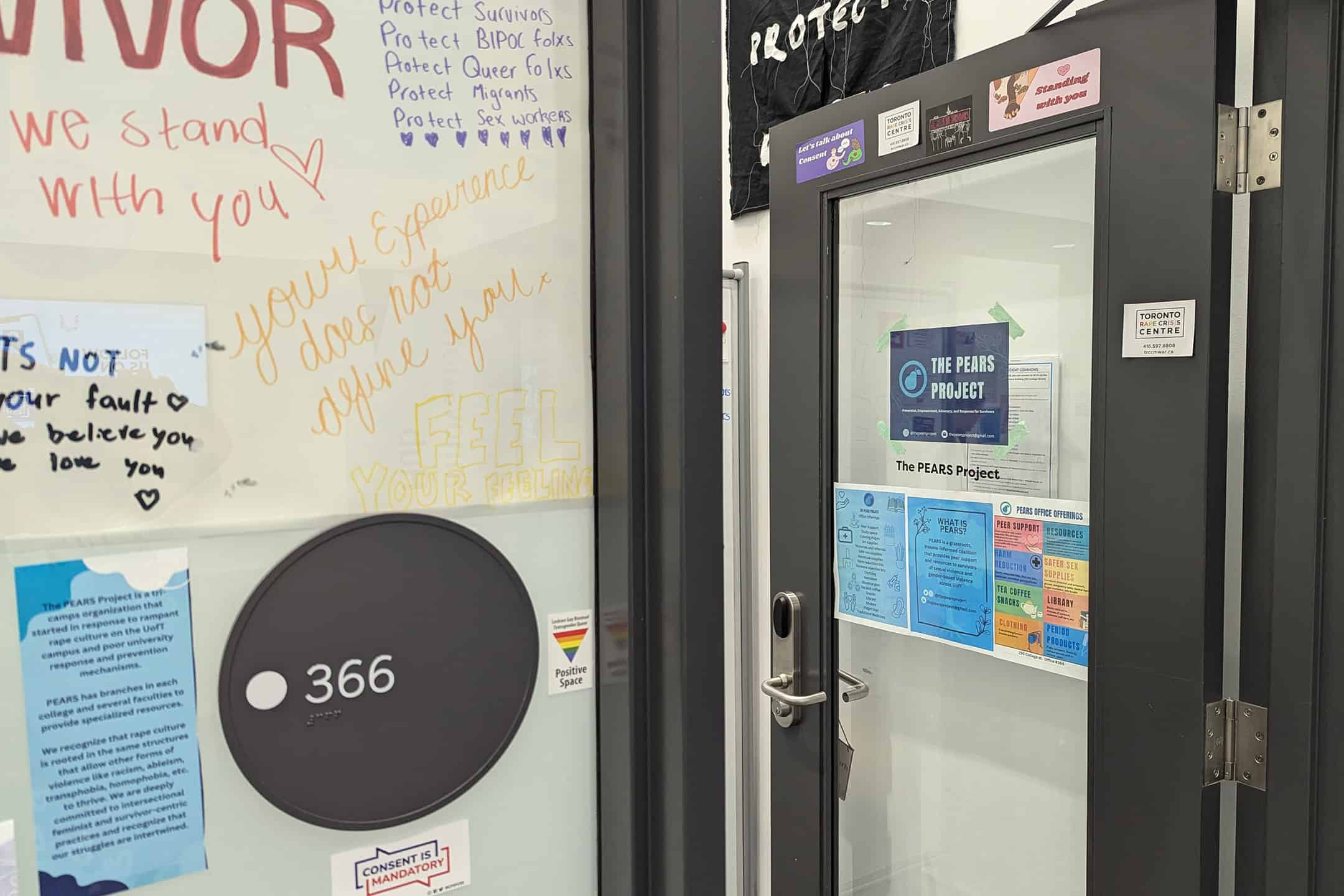On November 7, the Prevention, Empowerment, Advocacy, Response, for Survivors Project (PEARS) Project issued a letter to the university to “check in” on the review of U of T’s Sexual Violence Policy, set to occur in 2025. The PEARS Project is a grassroots, trauma-informed coalition that provides support and resources to survivors of sexual violence across U of T.
In a post to Instagram, the PEARS Project referenced their previous concerns with U of T accepting the sexual violence policy review recommendations in 2022. These criticisms were centred around demands for the policy to be more survivor-centric and accessible.
In anticipation of the university’s upcoming sexual violence policy review, the PEARS Project is calling for “a number of changes that still need to be made in order to protect, help, and advocate for the victims of sexual violence at the University of Toronto.”
PEARS letter
U of T’s revised Policy on Sexual Violence and Sexual Harassment is a document that contains the university’s commitments and reporting process for sexual violence on campus.
In its letter, the PEARS Project expressed skepticism toward the university review team, citing its 2022 review of the policy, stating that “within consultation and feedback sessions, it was apparent that the policy review team had a lack of knowledge surrounding the existing University of Toronto Sexual Violence Policy.”
In 2022, the review was co-chaired by Linda Johnston, the former dean of the Lawrence S. Bloomberg Faculty of Nursing, and Allison Burgess, the former director of the Sexual & Gender Diversity Office.
“It is important for members of the university community to be fully informed when looking at this review, and by failing to make this information explicit, the university fails to give its community the chance to form a full and fair perspective on this review,” the letter read.
Since 2016, the Ontario government has been requiring all postsecondary institutions to review their sexual violence policies every three years. U of T began its most recent review in October 2021 and completed it in July 2022.
At the end of the letter on Instagram, the PEARS Project critiqued the reliability of the university’s review process as a whole.
“This review process is not trauma-informed or survivor-centric, which can discourage survivor participation,” wrote the letter. “The three-year review cycle makes it difficult for students to effectively participate in a review process, as the majority graduate within a four-year time period.”
In a statement to The Varsity, a U of T spokesperson wrote that the next review is scheduled to begin in 2025, “and will take into consideration [the PEARS Project’s] views and those of other students, as well as staff, faculty and librarians.”
Section 8 of U of T’s policy states that every policy review “will include members of the University community, including students, staff and faculty, and will amend the [policy] as appropriate.”
Policy concerns
PEARS’ Policy Project Lead Taylor Stetka wrote in a message to The Varsity about the importance of an external policy review.
“Internal reviews only allow systemic issues in [U of T’s] policy on sexual violence and sexual harassment to be overlooked,” wrote Stetka. “The university’s reluctance to use an external reviewer who understands [g]ender-[b]ased [v]iolence ignores the intersectionality and reality of this issue.”
The PEARS Project Co-Directors Micah Kalisch, a first-year masters’ student studying women and gender studies, and Lusayo Simwaka, a fifth-year student studying history and women and gender studies, wrote about the significance of their demands in a message to The Varsity.
“PEARS has written to the University of Toronto in order to demand accountability,” they stated. Simwaka and Kalisch then explained that during the 2021–2022 policy review cycle, the Governing Council confirmed that an external review was possible.
“As [the council] reach[es] their legally obligated review period, we still have not heard anything with respect to their review process,” they said.
Klark Janowski — a fourth-year women and gender studies major and former member of the PEARS Project — wrote in a message to The Varsity on her experiences in the struggle for policy review.
“It’s not an easy feat to be a student and have to ask to be treated with respect and consideration,” wrote Janowski. “To have to stand in front of those in charge and beg to be taken seriously is incredibly demeaning and exhausting.”
Anaum Sajanlal — a third-year majoring in history and critical equity studies — wrote in a message to The Varsity about the importance of student activism regarding U of T’s sexual violence policy.
“It’s heartbreaking and infuriating. [H]ealing from sexual violence, supporting each other, and having to fight the university on top of that is a burden we should not have to bear,” wrote Sajanlal. “Survivors deserve better. U of T has to either step up and listen to the people who know what they’re talking about, or drop the act and stop wasting our time.”



No comments to display.